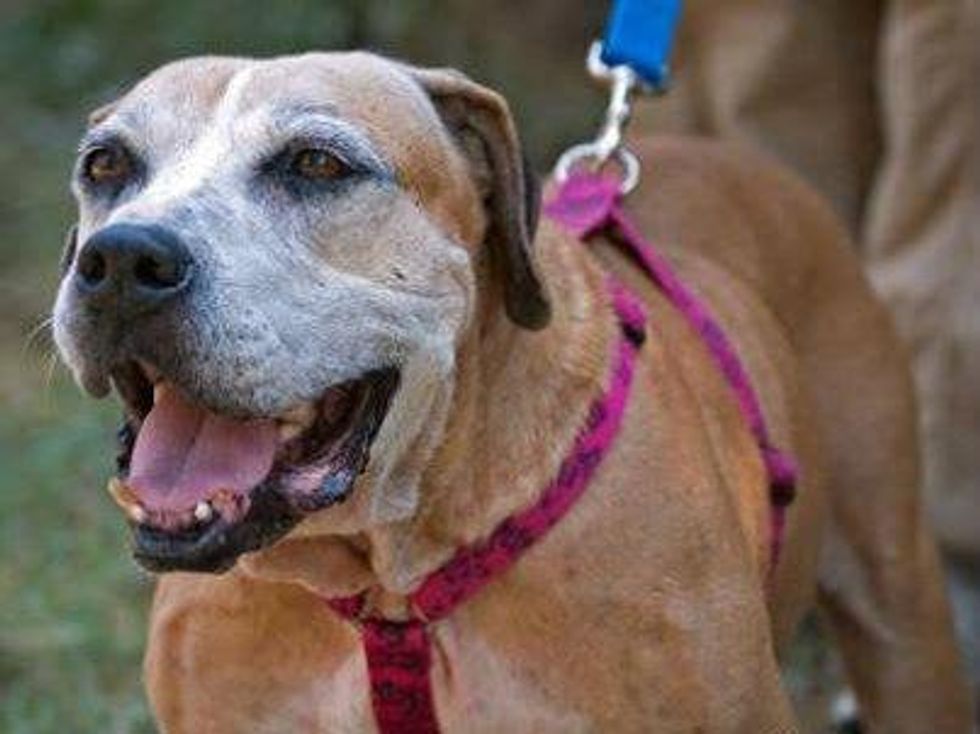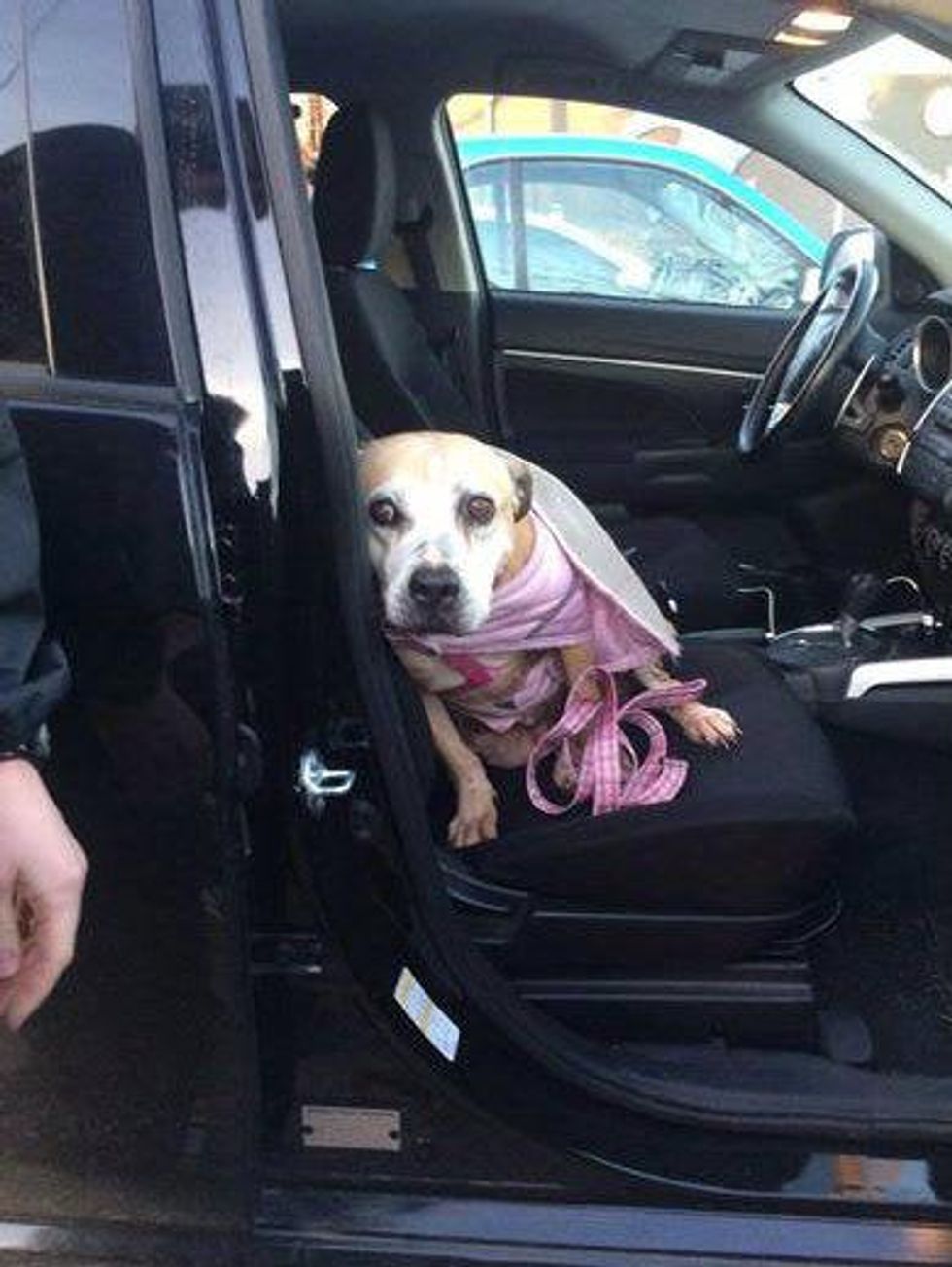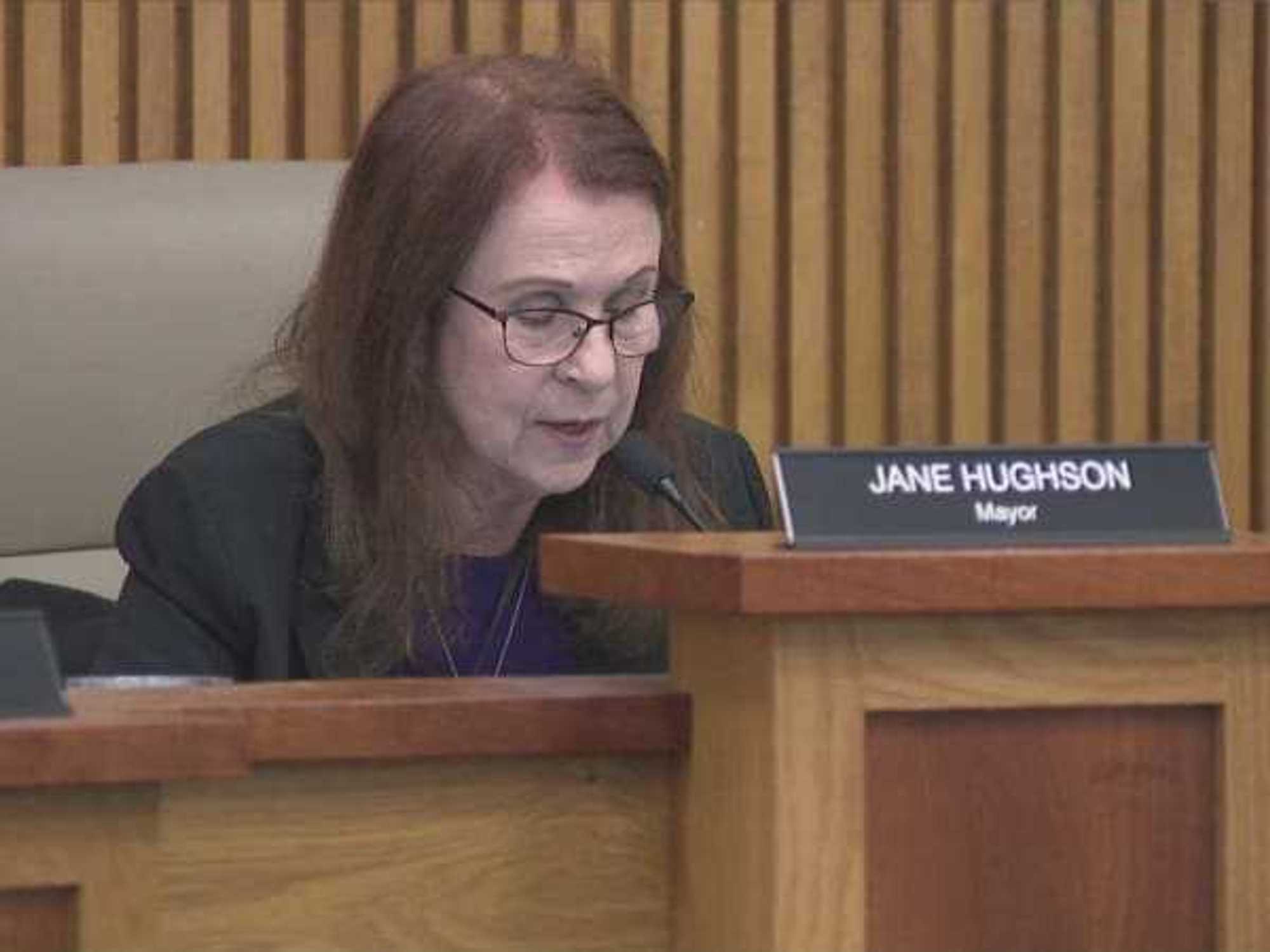Fannie Finds a Home
Fannie finds a home: In no-kill Austin, the remarkable story of long stay shelter dog
In the nearly four years since Austin was declared a no-kill city, residents and animal rescue organizations have rallied together to save the lives of thousands of our four-legged pals. Of these organizations, none has been as prominent as Austin Pets Alive!, the nonprofit started in 2008 by Emancipet founder Dr. Ellen Jefferson.
Over the past six years, from the shelter on Cesar Chavez, a pop-up shop on South Congress and the Tarrytown adoption center, APA! has found forever families for thousands of homeless animals. But not all dogs are adopted equally. While pups and small dogs tend to be swooped up quickly, bigger dogs — especially older pit bull mixes — can stay for weeks, months and even years. For those animals who take a bit longer to adopt, either because of age, breed or disability, APA! started the Lonely Heart Dogs.
While pups and small dogs tend to be swooped up quickly, bigger dogs — especially older pit bull mixes — can stay for weeks, months and even years.
A member of the Lonely Heart Dogs, Fannie, a 12-year-old Boxer and pit bull mix sat in the shelter at Austin Pets Alive! for 734 days, making her one of the longest stay animals at APA! ever. "She came in with her sister. They had been chained in a back yard, bred and over and over again," explains APA! director of operations Faith Wright.
Heartworm positive and suffering from severe separation anxiety, which, coupled with her age, made Fannie a difficult dog to adopt out. While her sister quickly found a home, Fannie remained. Destructive, depressed and in need of training, APA! volunteers worked with Fannie, eventually getting her housebroken and on a Prozac prescription that Wright says curbed her separation anxiety.
Using social media, volunteers relentlessly put the spotlight on Fannie, highlighting her sweet disposition, love of walks and attributes as a wonderful companion dog. But still, she waited. For exactly two years and four days, Fannie and the legions of friends and followers she made through Austin Pets Alive! waited for a family willing to give her a shot.
Then on Tuesday, February 11, Fannie found her family. Or, rather, her new family found her. After seeing her video and profile online, an active member of the military drove from Killeen to meet Fannie. Suffering from PTSD induced anxiety, the solider thought Fannie would be the perfect companion. With a stay-at-home mom and a toddler who, according to Wright, kissed Fannie on the nose upon meeting her, her new family seems the perfect fit for this beloved dog. "[Fannie's adoptive dad] said 'I just want to give her a chance,'" says Wright. Her new family is working to get her licensed as a companion dog for the soldier.
Reaction to her adoption in the APA! office was swift, with staff members and volunteers coming in on their day off to say goodbye to the beloved Fannie. "What my staff learned is there is someone for every dog, it may take a long time, but they're out there," says Wright, who confesses she can't tell the story without tearing up. After posting her story on the APA! Facebook page, the story garnered more than 19,000 "likes" and was shared more than 1,600 times.
For many folks in Austin, this unshakeable dedication to our four-legged pals isn't that surprising. After an aggressive campaign from No Kill Austin and widespread public support, the Austin City Council unanimously voted in March 2010 to make Austin no-kill. In order to maintain a no-kill status, euthanization may be performed only for issues of health or behavior and the city must keep the monthly survival rate of all rescued cats and dogs at 90 percent or more. In February 2011, less than a year after the Council's vote, Austin hit that goal, as it has every month since. In January 2014, the City of Austin reported at 93.28 percent success rate, a 1 percent growth from the previous year.
Austin's support of the no-kill city has raged on, with APA! being the frequent benefactor to everything from bar room benefits to the citywide fundraising day known as Amplify Austin. In 2013, APA! was the sixth most popular nonprofit, receiving more than $42,415 in donations in a 24-hour period.
Wright says she hopes that Fannie's story changes people's perspective on adopting older dogs. "Everybody comes to adopt puppies but people don't realize that the highest rate of return [at APA!] is from puppies that come back as adults with behavior issues," explains Wright. She urges people looking to add a pup to their home to look into older animals.
As for Fannie, after a life chained up, this senior dog will get to spend the rest of her days next to the person who saw past her graying beard and into her little heart of gold.



